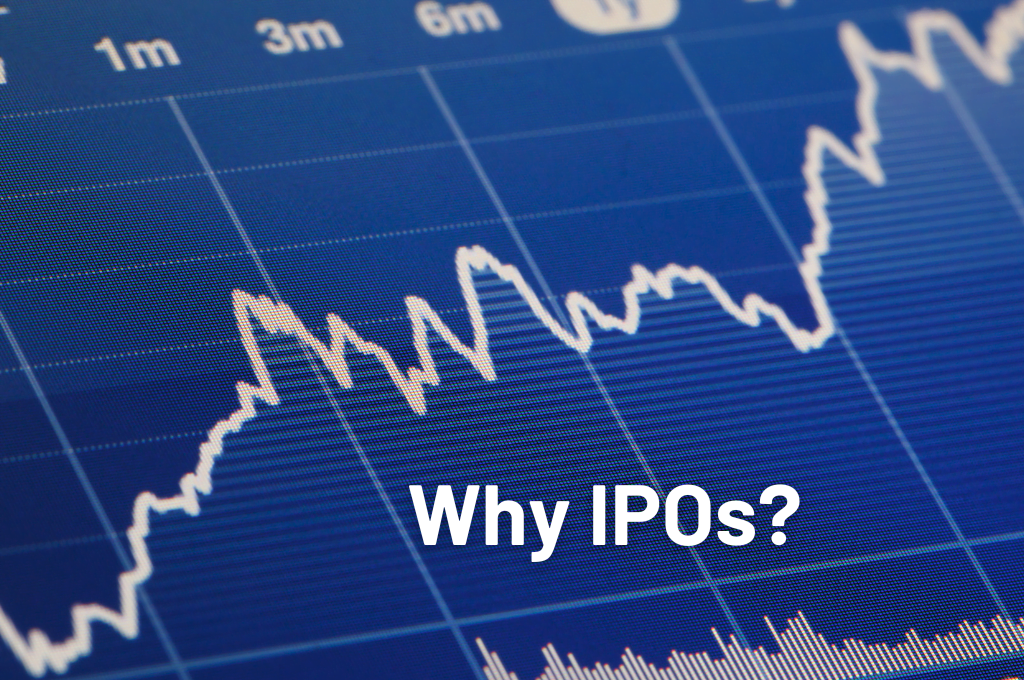When a company decides to go public through an Initial Public Offering (IPO), it means that they want to invite people from all around to become owners of their business. This process helps the company raise money and become a part of the stock market, where people can buy and sell shares.
Why Do Companies Go Public?
Get Money
When a company goes public, they can sell shares to people, and in return, the company receives money. This money can be used to grow the company, create new products, buy other businesses, or pay off debts. It’s like a way for the company to save up and have more resources to do bigger things.
Become Famous
Going public makes a company more well-known. When a company is on the stock market, it gets noticed by more people, and this can make the company look important and trustworthy. Customers, suppliers, and partners start to recognize the company, and it can create good opportunities for the company’s growth.
Give Owners Money
The people who started the company and put their own money into it can sell some of their shares to the public. This allows them to turn their hard work into money. It’s like a reward for their efforts, and they can use this money to invest in other things or enjoy it.
Buy Other Companies
When a company is public, it can use its shares like money to buy other companies. This helps the company expand and become even bigger. It’s like a way for the company to grow by joining forces with other businesses.
Keep Employees Happy
When a company goes public, it can give special rewards to its employees. These rewards are often in the form of employee stock options , which means the employees can own a small part of the company. This makes the employees happy and motivated to work hard because they feel like they’re a part of the company’s success.
Let Investors Leave
Sometimes, the people who have invested money in a company want to get their money back and move on to other investments. When a company is public, these investors can sell their shares to other people in the stock market. This way, they can leave the company if they want to without any trouble.
Follow Rules
In some cases, the law says that a big company must go public. This is to make sure that the company is transparent and accountable to the public. It’s like a way of making sure that the company is playing by the rules.
Cons of Going Public:
Cost and Rules
Going public is not easy and can be expensive for a company. There are many rules and regulations that the company has to follow, and it takes a lot of time and effort to meet all the requirements. It also costs money to hire experts, like lawyers and accountants, who help with the process.
Less Control
When a company is public, it means that many people own a part of it. These people are called shareholders, and they have a say in how the company is run. The owners of the company might have less control over the decisions because they have to listen to what the shareholders want. It’s like having many bosses instead of just a few.
Short-Term Focus
Public companies have to show good profits every few months. This can put pressure on the company to focus on making money quickly instead of thinking about long-term plans and investments. Sometimes, this can make it hard for the company to take risks or invest in things that may take a longer time to pay off.
Price Changes
When a company is on the stock market, the price of its shares can go up and down a lot. This happens because people’s opinions about the company can change. It can be stressful for the company and its owners because the value of the company can change quickly, and this can affect how people see the company.
Competition Risk
When a company goes public, it has to share a lot of financial and strategic information with the public. While transparency is a good thing, it can also give competitors insights into the company’s operations and plans. This can make it harder for the company to stay ahead of the competition.
Legal Trouble
Public companies might face lawsuits from investors or others who are not happy with the company’s actions. This can be costly and time-consuming for the company, and it can also damage the company’s reputation.
Too Much Sharing
Going public means that a company has to share a lot of information with the public, including sensitive information about its finances and operations. Sometimes, this information can be used by competitors or others to their advantage. It’s like revealing some secrets that the company would rather keep to itself.
In conclusion, going public is a big decision for a company. It has its advantages, like getting money and becoming more well-known, but it also has challenges and risks. Companies need to carefully consider if going public is the right choice for them, as it can bring both benefits and drawbacks to their business.
Who gets the money from an IPO?
The money from an IPO goes to the selling shareholders, which can be the company’s founders, early investors, or current shareholders. The company itself does not receive any money from the IPO.


Very good article to explain why companies go public to raise money